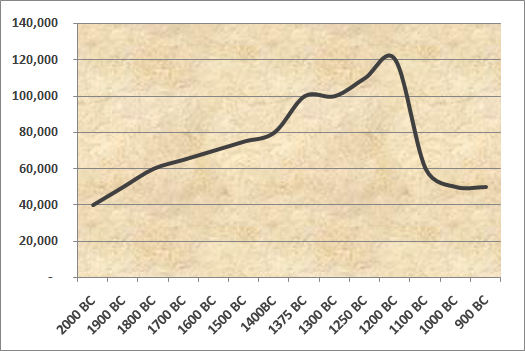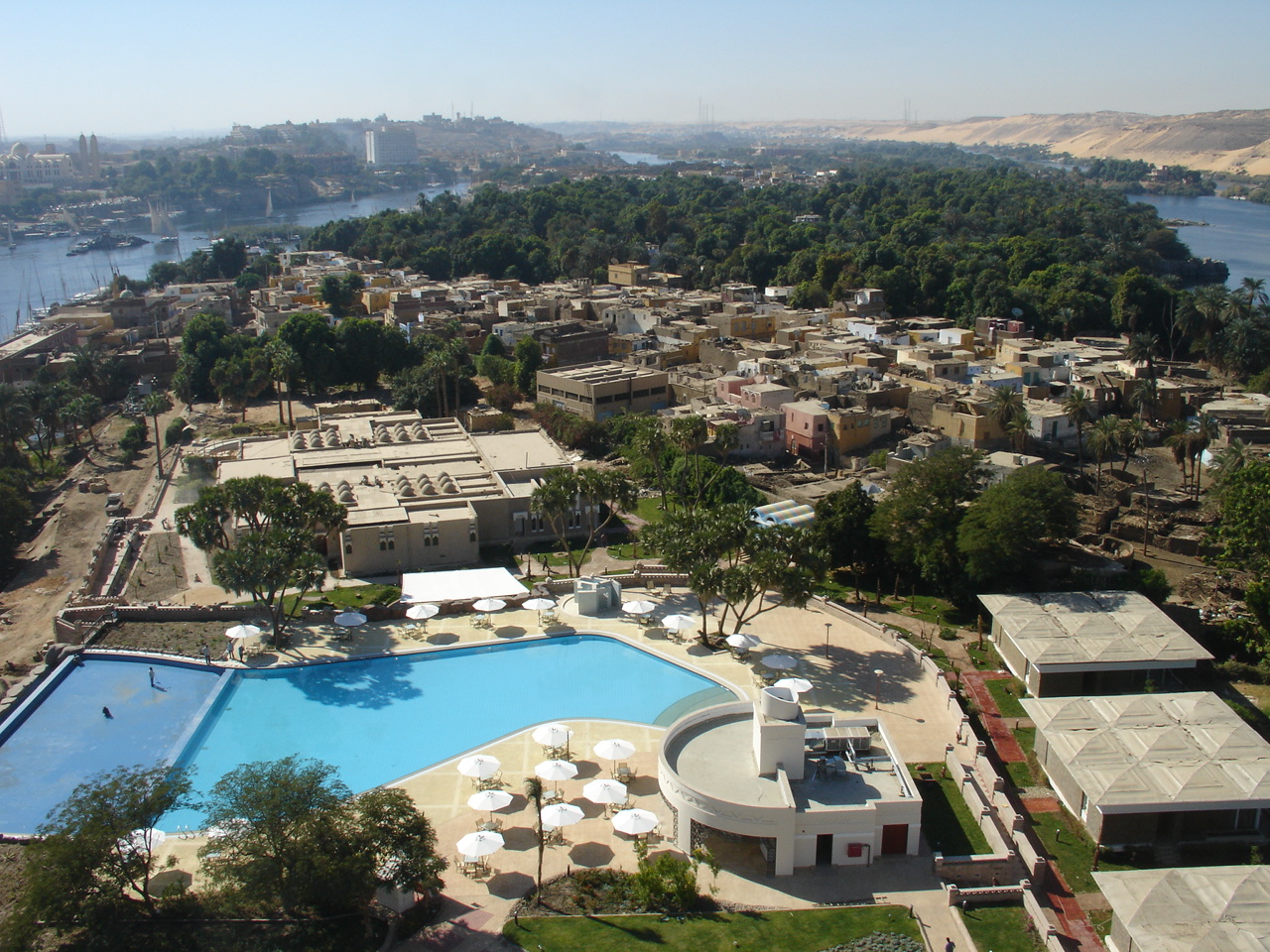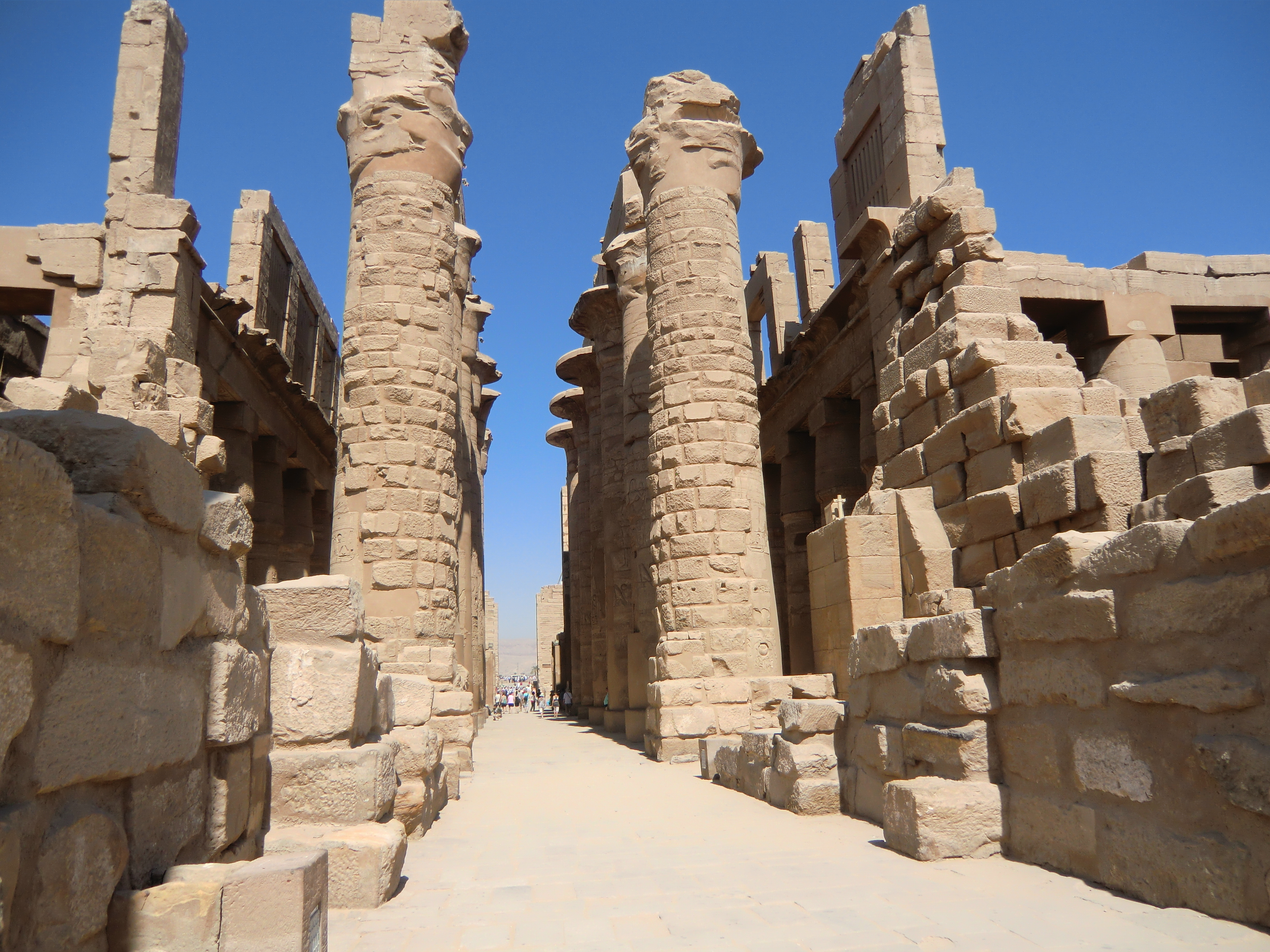|
Herbert Ricke
Herbert Rüdiger Ricke (27 September 1901 – 22 March 1976), was a German archaeologist, Egyptologist and architectural historian who is best known for his works on ancient Egyptian architecture. Biography H. Ricke studied architecture from 1920 to 1925 at Leibniz University Hannover where he was influenced by the Bauhaus. After obtaining his Diplom in 1925, he worked in Egypt from 1926 to 1928 under the direction of Ludwig Borchardt on the publication of excavations undertaken at Tel al-Amarna by the Deutsche Orient-Gesellschaft (German oriental society), which had been interrupted by the first world war. Thanks to his work ''Der Grundriss des Amarna-Wohnhauses'' (The plan of dwellings at Amarna), he received his doctorate under the supervision of Uvo Hölscher at Leibniz University Hannover. He then returned as an employee of Borchardt in Egypt, in Borchardt's Institute, now known as the Swiss research institute on Egyptian architecture and archaeology in Cairo. He undertoo ... [...More Info...] [...Related Items...] OR: [Wikipedia] [Google] [Baidu] |
Hannover
Hanover ( ; ; ) is the capital and largest city of the States of Germany, German state of Lower Saxony. Its population of 535,932 (2021) makes it the List of cities in Germany by population, 13th-largest city in Germany as well as the fourth-largest in northern Germany after Berlin, Hamburg and Bremen. Hanover's urban area comprises the towns of Garbsen, Langenhagen and Laatzen and has a population of about 791,000 (2018). The Hanover Region has approximately 1.16 million inhabitants (2019) and is the largest in the Hannover–Braunschweig–Göttingen–Wolfsburg Metropolitan Region, Hanover–Braunschweig–Göttingen–Wolfsburg Metropolitan Region, the List of EU metropolitan areas by GDP, 17th biggest metropolitan area by GDP in the European Union. Before it became the capital of Lower Saxony in 1946, Hanover was the capital of the Principality of Calenberg (1636–1692), the Electorate of Hanover (1692–1814), the Kingdom of Hanover (1814–1866), the Province of Hannove ... [...More Info...] [...Related Items...] OR: [Wikipedia] [Google] [Baidu] |
Thebes, Egypt
Thebes (, , ''Thēbai''), known to the ancient Egyptians as Waset, was an ancient Egyptian city located along the Nile about south of the Mediterranean. Its ruins lie within the modern Egyptian city of Luxor. Thebes was the main city of the fourth Upper Egyptian nome (Sceptre nome) and was the capital of Egypt for long periods during the Middle Kingdom and New Kingdom eras. It was close to Nubia and the Eastern Desert, with its valuable mineral resources and trade routes. It was a religious center and the most venerated city during many periods of ancient Egyptian history. The site of Thebes includes areas on both the eastern bank of the Nile, where the temples of Karnak and Luxor stand and where the city was situated; and the western bank, where a necropolis of large private and royal cemeteries and funerary complexes can be found. In 1979, the ruins of ancient Thebes were classified by UNESCO as a World Heritage Site. Toponymy The Egyptian name for Thebes was ''w� ... [...More Info...] [...Related Items...] OR: [Wikipedia] [Google] [Baidu] |
German Egyptologists
German(s) may refer to: * Germany, the country of the Germans and German things **Germania (Roman era) * Germans, citizens of Germany, people of German ancestry, or native speakers of the German language ** For citizenship in Germany, see also German nationality law **Germanic peoples (Roman era) * German diaspora * German language * German cuisine, traditional foods of Germany People * German (given name) * German (surname) * Germán, a Spanish name Places * German (parish), Isle of Man * German, Albania, or Gërmej * German, Bulgaria * German, Iran * German, North Macedonia * German, New York, U.S. * Agios Germanos, Greece Other uses * German (mythology), a South Slavic mythological being * Germans (band), a Canadian rock band * "German" (song), a 2019 song by No Money Enterprise * ''The German'', a 2008 short film * "The Germans", an episode of ''Fawlty Towers'' * ''The German'', a nickname for Congolese rebel André Kisase Ngandu See also * Germanic (disam ... [...More Info...] [...Related Items...] OR: [Wikipedia] [Google] [Baidu] |
1976 Deaths
Events January * January 2 – The International Covenant on Economic, Social and Cultural Rights enters into force. * January 5 – The Pol Pot regime proclaims a new constitution for Democratic Kampuchea. * January 18 – Full diplomatic relations are established between Bangladesh and Pakistan 5 years after the Bangladesh Liberation War. * January 27 ** The United States vetoes a United Nations resolution that calls for an independent Palestinian state. ** The First Battle of Amgala breaks out between Morocco and Algeria in the Spanish Sahara. February * February 4 ** The 1976 Winter Olympics begin in Innsbruck, Austria. ** The 7.5 Guatemala earthquake affects Guatemala and Honduras with a maximum Mercalli intensity of IX (''Violent''), leaving 23,000 dead and 76,000 injured. * February 9 – The Australian Defence Force is formed by unification of the Australian Army, the Royal Australian Navy and the Royal Australian Air Force. * February 13 – General ... [...More Info...] [...Related Items...] OR: [Wikipedia] [Google] [Baidu] |
1901 Births
December 13 of this year is the beginning of signed 32-bit computing, 32-bit Unix time, and is scheduled to end in Year 2038 problem, January 19, 2038. Summary Political and military 1901 started with the Federation of Australia, unification of multiple Crown colony, British colonies in Australia on January 1 to form the Australia, Commonwealth of Australia after a 1898–1900 Australian constitutional referendums, referendum in 1900, Subsequently, the 1901 Australian federal election, 1901 Australian election would see the first Prime Minister of Australia, Australian prime minister, Edmund Barton. On the same day, Nigeria became a Colonial Nigeria, British protectorate. Following this, the Victorian era, Victorian Era would come to a end after Queen Victoria died on January 22 after a reign of 63 years and 216 days, which was List of monarchs in Britain by length of reign, longer than those of any of her predecessors, Her son, Edward VII, succeeded her to the throne. ... [...More Info...] [...Related Items...] OR: [Wikipedia] [Google] [Baidu] |
Abusir
Abusir ( ; Egyptian ''pr wsjr'' ' "the resting place of Osiris"; ) is the name given to an ancient Egyptian archaeological pyramid complex comprising the ruins of 4 kings' pyramids dating to the Old Kingdom period, and is part of the Pyramid Fields of the Memphis and its Necropolis UNESCO World Heritage Site. The pyramid complex is named after the neighbouring village of Abusir, in the markaz (county) of Badrashin, Giza. The Abusir pyramid complex is located on the Western Desert plateau at the edge of the cultivated plain, with the Giza Pyramids to its north, and Saqqara to its south, and served as one of the main elite cemeteries for the ancient Egyptian capital city of Memphis. Several other villages in northern and southern Egypt are named Abusir or Busiri. The locality of Abusir took its turn as the focus of the prestigious western burial rites operating out of the then-capital of Memphis during the Old Kingdom 5th Dynasty. As an elite cemetery, neighbou ... [...More Info...] [...Related Items...] OR: [Wikipedia] [Google] [Baidu] |
Dahshur
DahshurAlso transliterated ''Dahshour'' (in English often called ''Dashur''; ' ) is an ancient Egyptian pyramid complex and necropolis and shares the name of the nearby village of Manshiyyat Dahshur () in markaz Badrashin, Giza Governorate, Giza. Dahshur is listed as a UNESCO World Heritage Site, and is located on the Western Desert (Egypt), Western Desert plateau at the edge of the cultivated plain, and along with the pyramid complexes at Saqqara, Abusir, and Giza pyramid complex, Giza, to its north, forms the Memphite Necropolis, pyramid fields of the ancient capital city of Memphis, Egypt, Memphis. It is known chiefly for several pyramids, mainly Sneferu, Sneferu's Bent Pyramid and the Red Pyramid, which are among the oldest, largest and best preserved in Egypt, built from 2613 to 2589 BC. Pyramids The Dahshur pyramids were an extremely important learning experience for the Egyptians. It provided them with the knowledge and know-how to transition from step-sided pyramids ... [...More Info...] [...Related Items...] OR: [Wikipedia] [Google] [Baidu] |
World War II
World War II or the Second World War (1 September 1939 – 2 September 1945) was a World war, global conflict between two coalitions: the Allies of World War II, Allies and the Axis powers. World War II by country, Nearly all of the world's countries participated, with many nations mobilising all resources in pursuit of total war. Tanks in World War II, Tanks and Air warfare of World War II, aircraft played major roles, enabling the strategic bombing of cities and delivery of the Atomic bombings of Hiroshima and Nagasaki, first and only nuclear weapons ever used in war. World War II is the List of wars by death toll, deadliest conflict in history, causing World War II casualties, the death of 70 to 85 million people, more than half of whom were civilians. Millions died in genocides, including the Holocaust, and by massacres, starvation, and disease. After the Allied victory, Allied-occupied Germany, Germany, Allied-occupied Austria, Austria, Occupation of Japan, Japan, a ... [...More Info...] [...Related Items...] OR: [Wikipedia] [Google] [Baidu] |
Elephantine
Elephantine ( ; ; ; ''Elephantíne''; , ) is an island on the Nile, forming part of the city of Aswan in Upper Egypt. The archaeological site, archaeological digs on the island became a World Heritage Site in 1979, along with other examples of Upper Egyptian architecture, as part of the "Nubian Monuments from Abu Simbel to Philae" (despite Elephantine being neither Nubian, nor between Abu Simbel and Philae temple complex, Philae). The island has been studied through excavation sites. Aramaic Papyrus, papyri and Ostracon, ostraca have been collected to study what life was like on Elephantine during the time of ancient Egypt. There have been studies about the Elephantine Triad and the Jews, Jewish presence that formulated on the island. The standard reference collection of the Aramaic documents of the Elephantine papyri and ostraca, Elephantine Papyri and Ostraca is the ''Textbook of Aramaic Documents from Ancient Egypt''. Geography Elephantine, or what ancient Egyptians called ... [...More Info...] [...Related Items...] OR: [Wikipedia] [Google] [Baidu] |
Karnak
The Karnak Temple Complex, commonly known as Karnak (), comprises a vast mix of temples, pylons, chapels, and other buildings near Luxor, Egypt. Construction at the complex began during the reign of Senusret I (reigned 1971–1926 BC) in the Middle Kingdom () and continued into the Ptolemaic Kingdom (305–30 BC), although most of the extant buildings date from the New Kingdom. The area around Karnak was the ancient Egyptian ''Ipet-isut'' ("The Most Selected of Places") and the main place of worship of the 18th Dynastic Theban Triad, with the god Amun as its head. It is part of the monumental city of Thebes, and in 1979 it was added to the UNESCO World Heritage List along with the rest of the city. Karnak gets its name from the nearby, and partly surrounded, modern village of El-Karnak, north of Luxor. Name The original name of the temple was ''Ipet-isut'', meaning "The Most Select of Places". The complex's modern name "Karnak" comes from the nearby village of el-Karnak ... [...More Info...] [...Related Items...] OR: [Wikipedia] [Google] [Baidu] |
World War I
World War I or the First World War (28 July 1914 – 11 November 1918), also known as the Great War, was a World war, global conflict between two coalitions: the Allies of World War I, Allies (or Entente) and the Central Powers. Fighting took place mainly in European theatre of World War I, Europe and the Middle Eastern theatre of World War I, Middle East, as well as in parts of African theatre of World War I, Africa and the Asian and Pacific theatre of World War I, Asia-Pacific, and in Europe was characterised by trench warfare; the widespread use of Artillery of World War I, artillery, machine guns, and Chemical weapons in World War I, chemical weapons (gas); and the introductions of Tanks in World War I, tanks and Aviation in World War I, aircraft. World War I was one of the List of wars by death toll, deadliest conflicts in history, resulting in an estimated World War I casualties, 10 million military dead and more than 20 million wounded, plus some 10 million civilian de ... [...More Info...] [...Related Items...] OR: [Wikipedia] [Google] [Baidu] |





